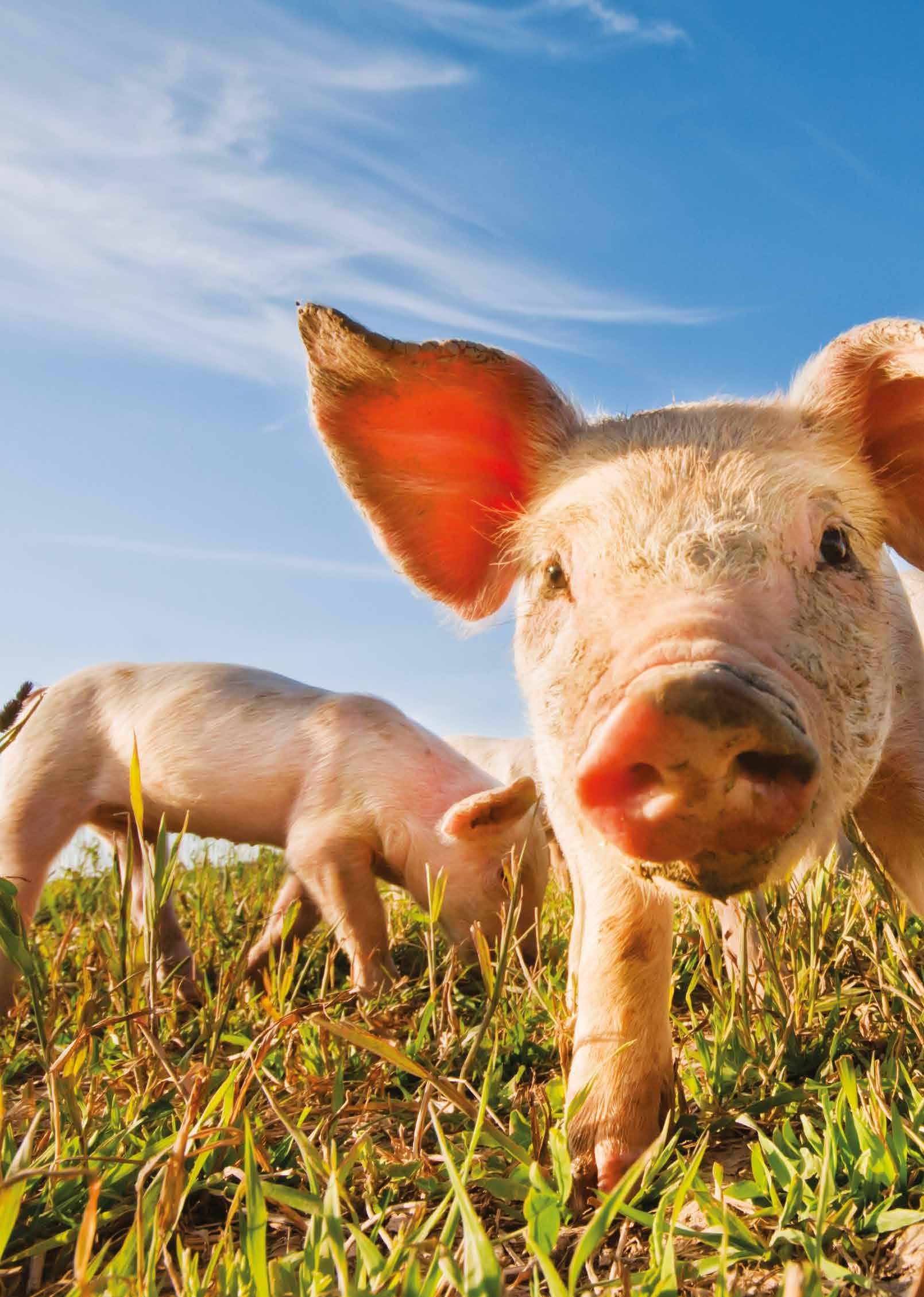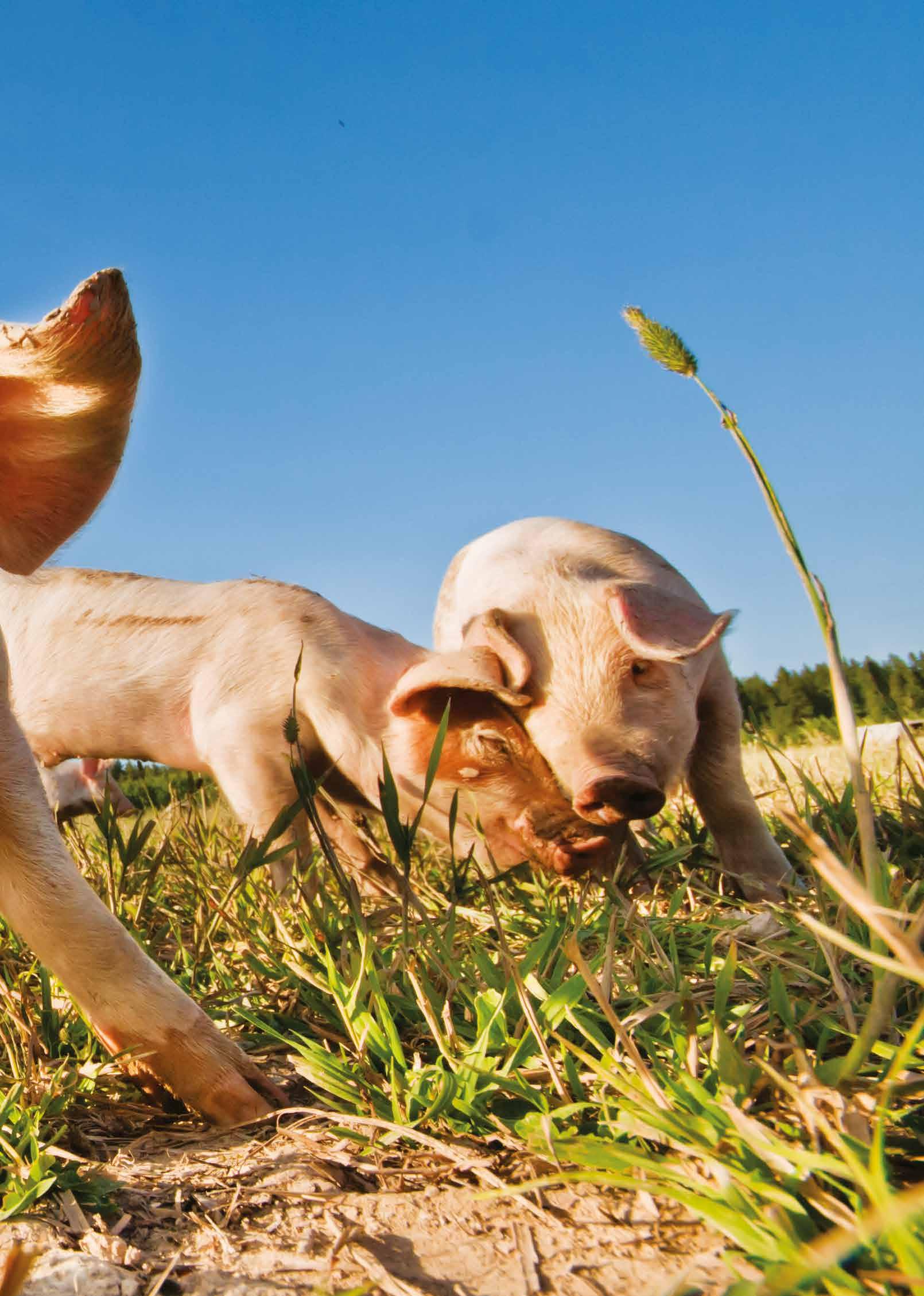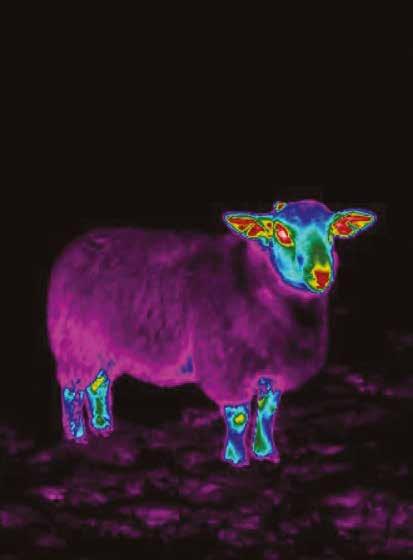
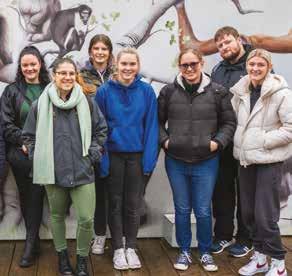
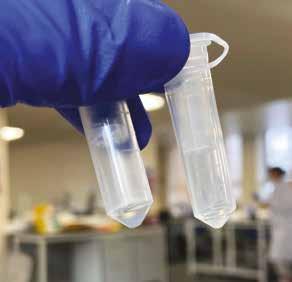
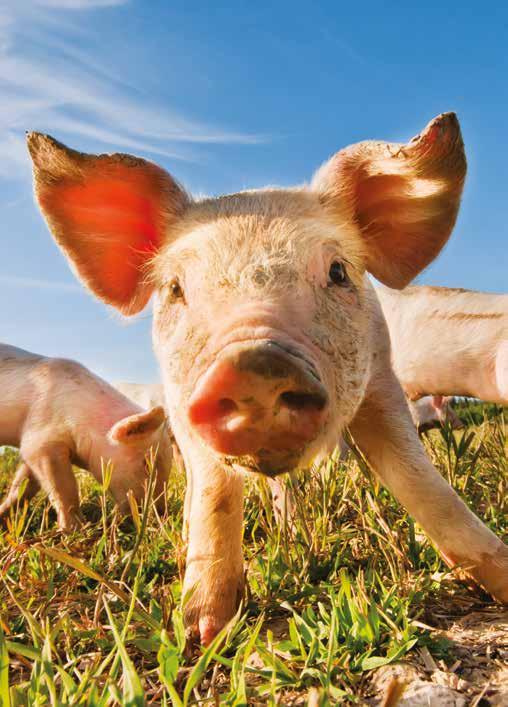
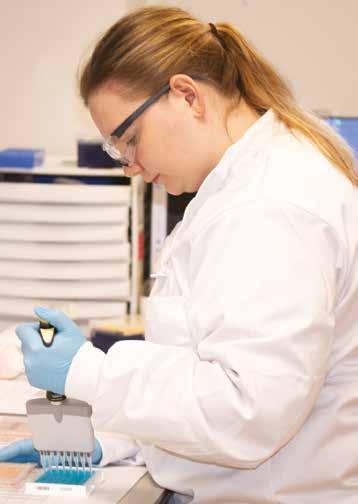


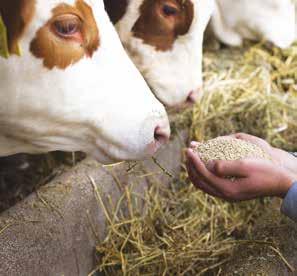

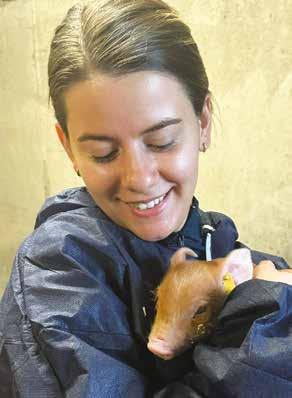
BSc/BSc (Hons) APPLIED ANIMAL SCIENCE Course Guide www.sruc.ac.uk/animalscience
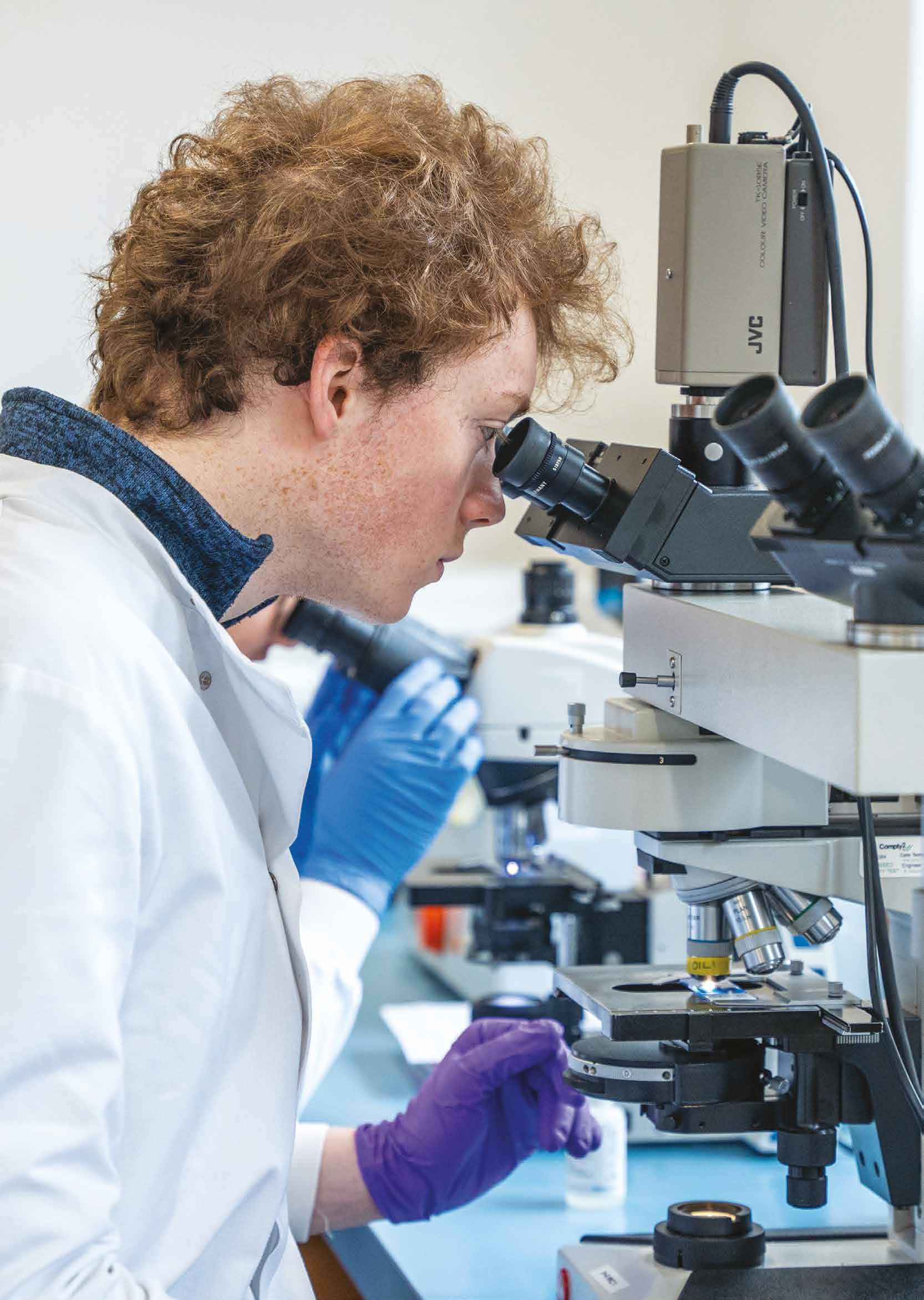
INTRODUCTION Course Guide
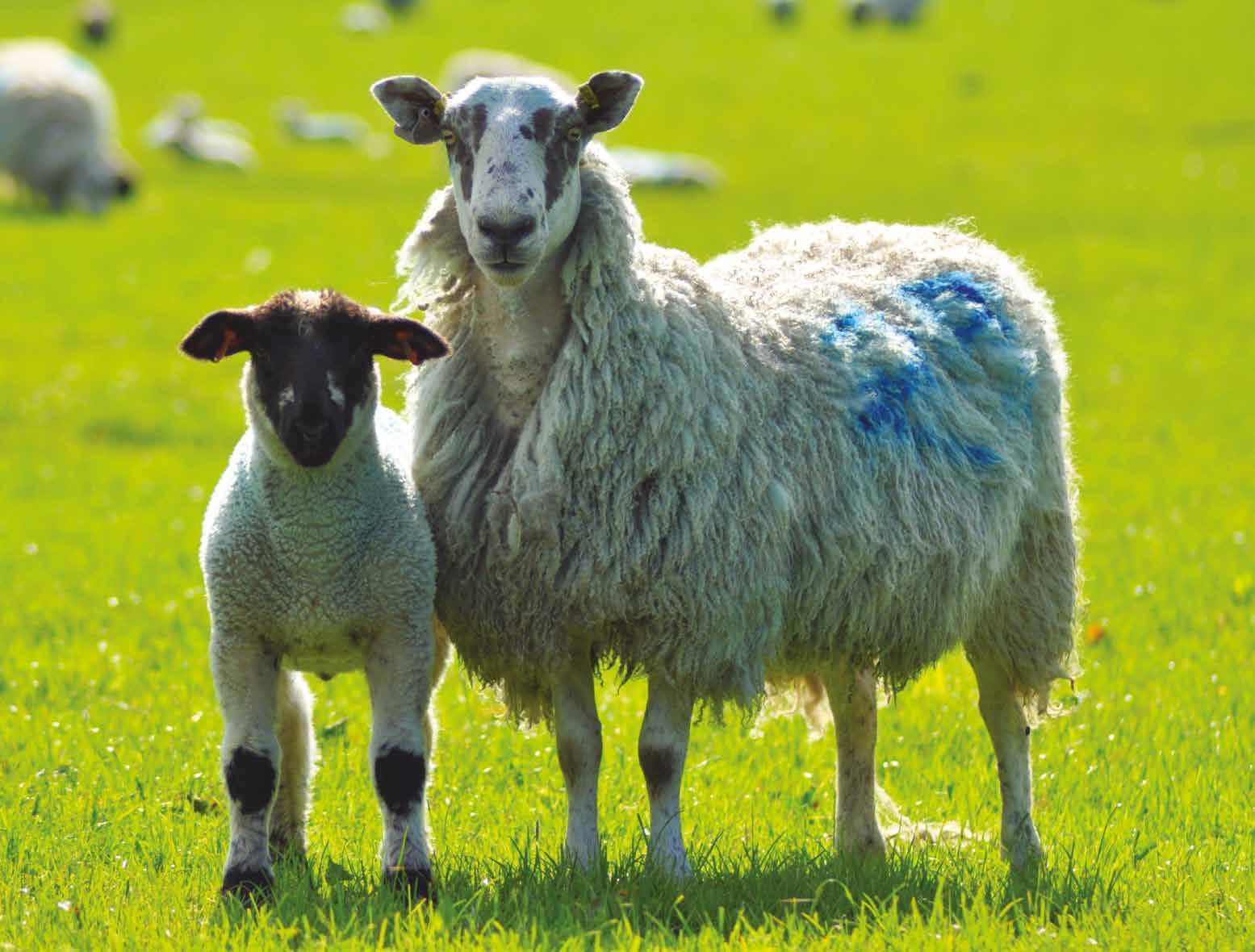
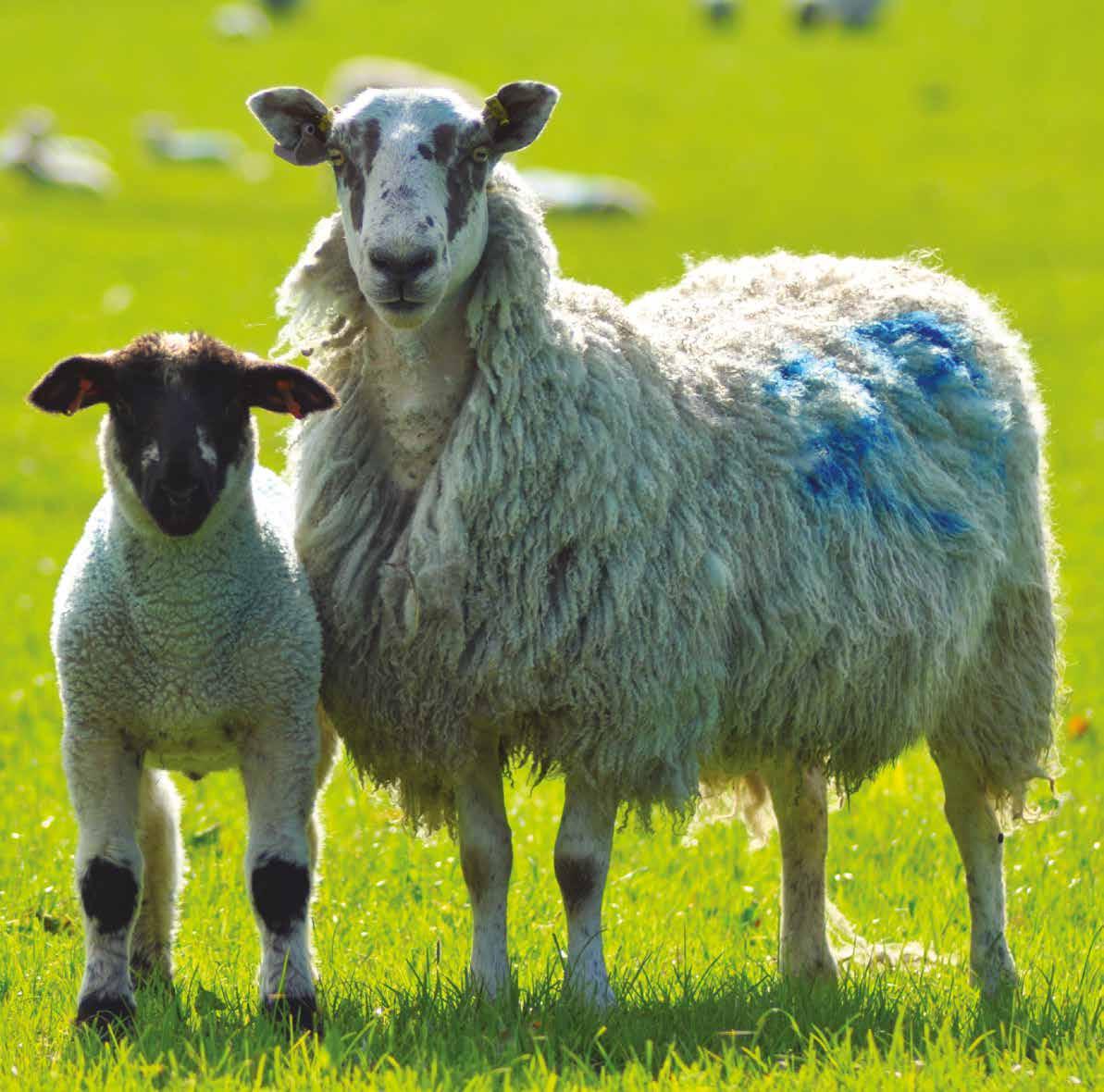
Are you interested in animal biology?
Do you have an enquiring mind?
Are you motivated to make a positive difference to the lives of animals?
Do you want to pursue a fulfilling career working in an animal related industry?
Then Applied Animal Science
2 www.sruc.ac.uk/animalscience
is the course for you!
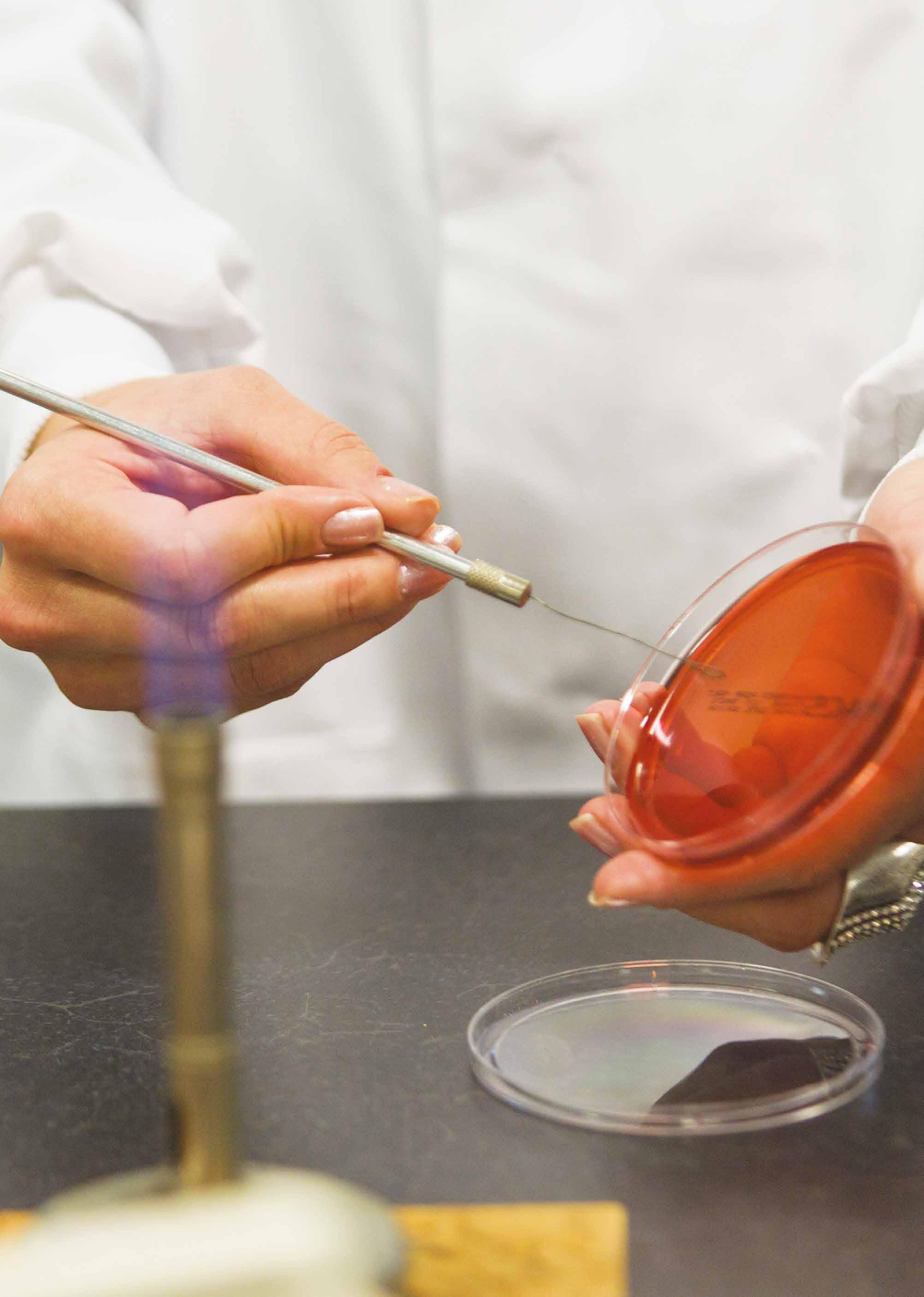
Course Guide
Applied Animal Sciences is a rewarding course that is perfect for those with an enquiring mind who are fascinated by animal biology.
This course teaches the underpinning theoretical knowledge of animal biology with a focus on how this can be applied in the real world to address global challenges such as food security, disease control, antimicrobial resistance, climate change, and animal welfare.
This BSc (Hons) Applied Animal Science course prepares you for a wide range of exciting and varied career roles with graduates contributing to important societal changes across a range of sectors including improving animal and human health and welfare, enhancing productivity, and ensuring sustainable use of animal and environmental resources.
4 www.sruc.ac.uk/animalscience
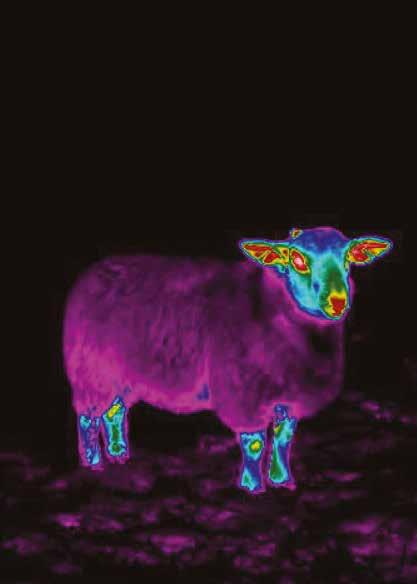
KEY FACTS
Course Guide
BSc / BSc (HONS)
APPLIED ANIMAL SCIENCE
ENABLES PROGRESSION TO:
• Veterinary Medicine
• Veterinary Bioscience
• And Postgraduate study such as: MScs and PhDs in all aspects of Animal Science and Biology, and related subjects such as statistics
ALLOWS PROGRESSION FROM:
• HND Rural Animal Health
• HNC/D Animal Care
• Veterinary Bioscience
• Veterinary Nursing
“There’s so many parts of the course to sink your teeth into that you are guaranteed to find your niche.”
6 www.sruc.ac.uk/animalscience
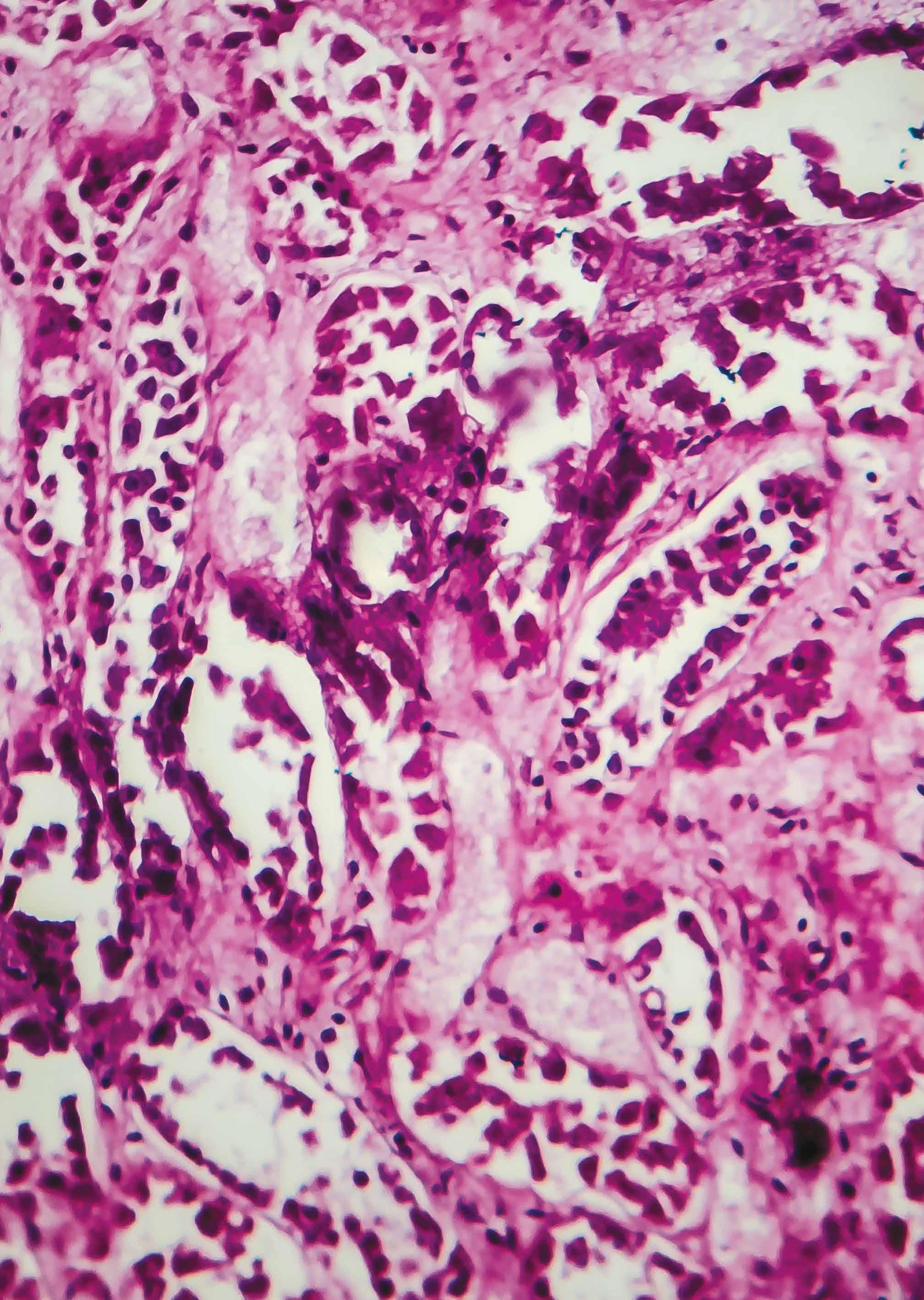
Course Guide
ENTRY REQUIREMENTS
4 Highers at ABBB / 3 A-Levels at BBB, to include biology, human biology or chemistry.
Applicants should be able to satisfy basic literacy and numeracy requirements.
Entry into Year 2 or 3 is possible with an appropriate HNC/D, foundation degree, or similar qualification.
STUDY MODES
This course is available full-time and part-time.
8 www.sruc.ac.uk/animalscience

Course Guide
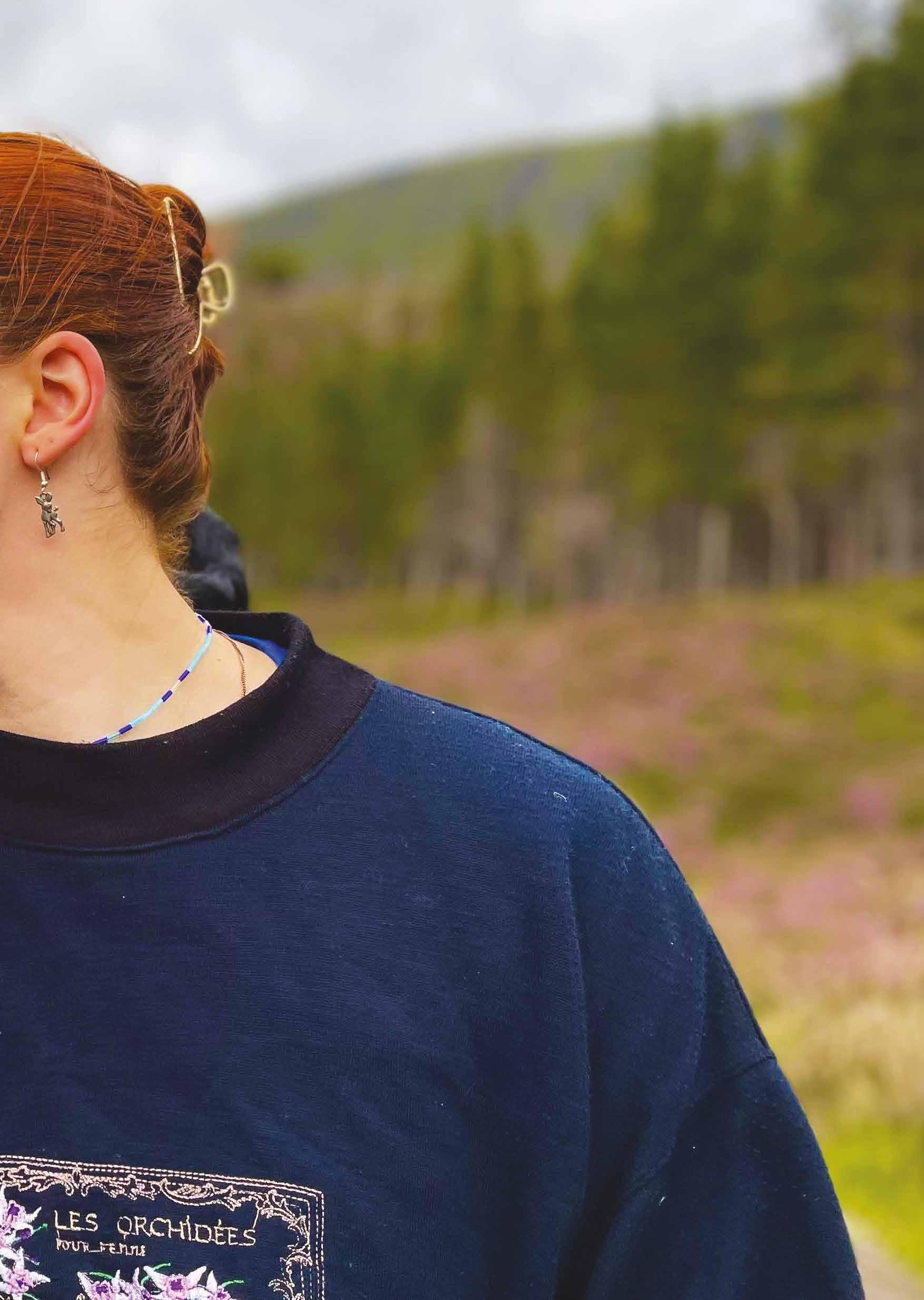
WHERE CAN I STUDY? Please visit the Course Catalogue on our website for full details: www.sruc.ac.uk/courses “SRUC has such a range of facilities that we get access to, such as farms and research centres. SRUC can give you the best opportunities try to make the most of this.” 10 www.sruc.ac.uk/animalscience
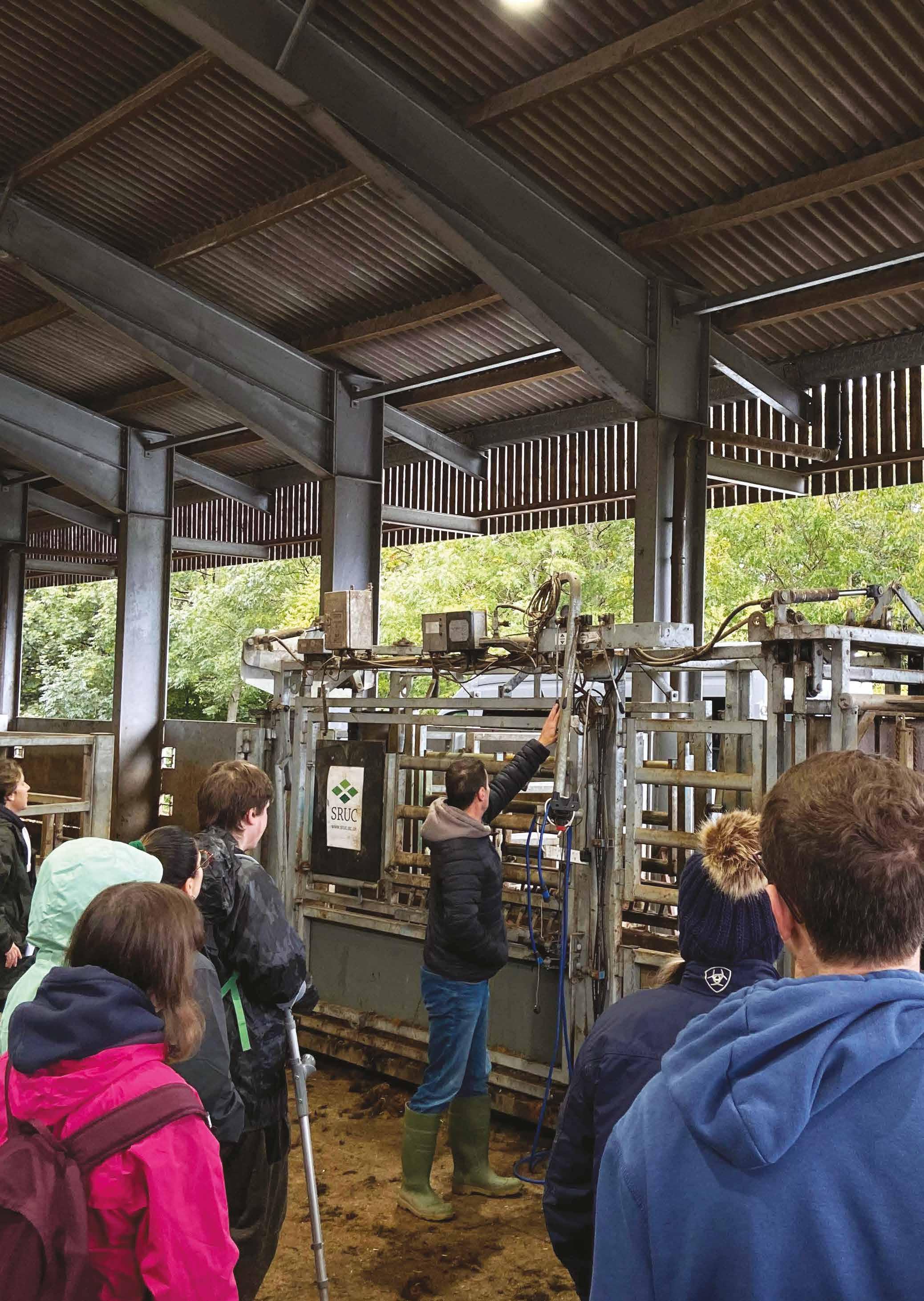
WHAT’S THE COURSE LIKE?
Course Guide
This course is a blend of theory and practice, with a focus on interactive learning where you are encouraged to discuss and apply your learning to real world scenarios. You will develop key academic and practical skills and learn to think like a scientist.
The course is built around 6 key themes, and these will build in complexity as you progress through the years. These themes are all are underpinned by key quantitative, practical and research skills (QPR).
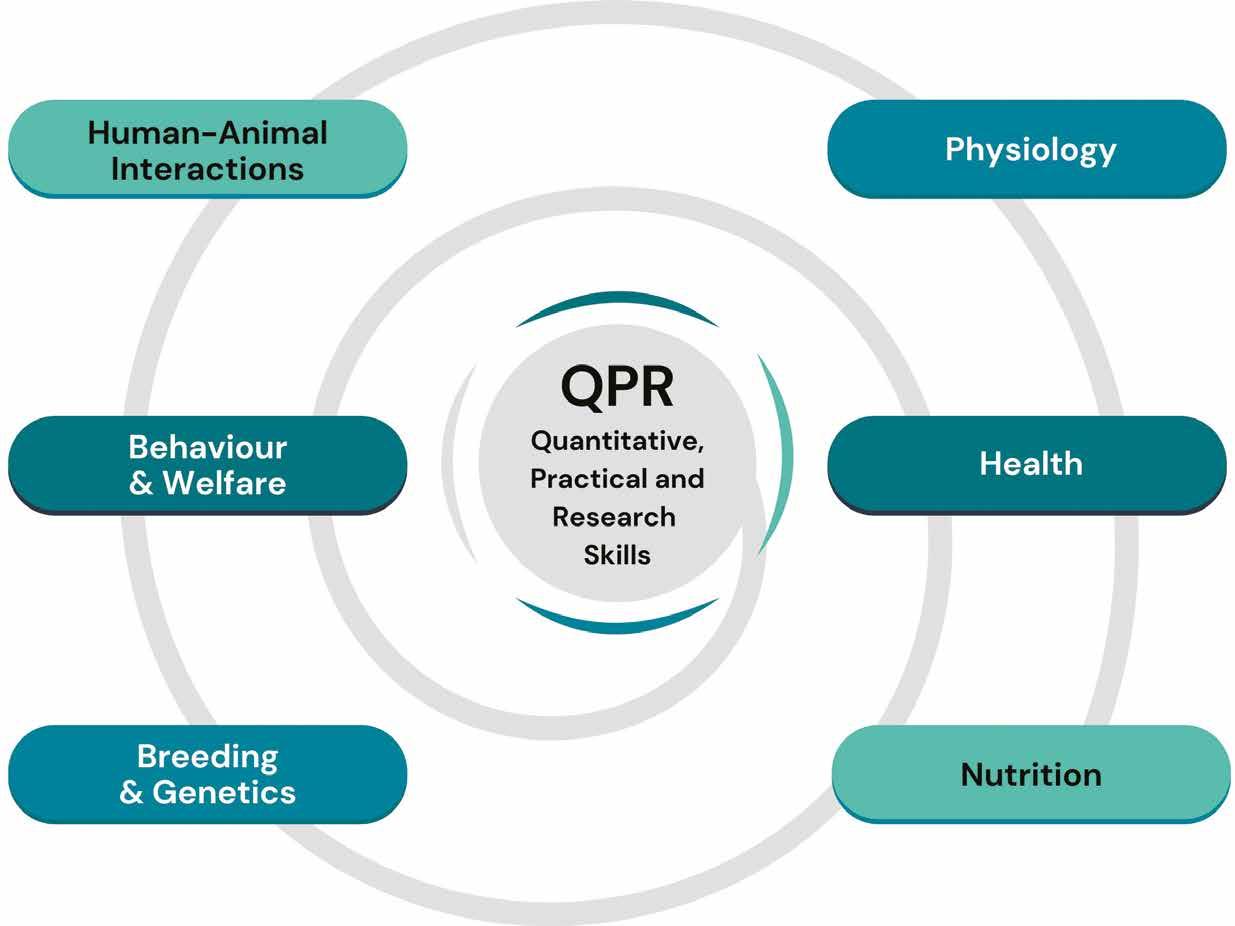
12
www.sruc.ac.uk/animalscience
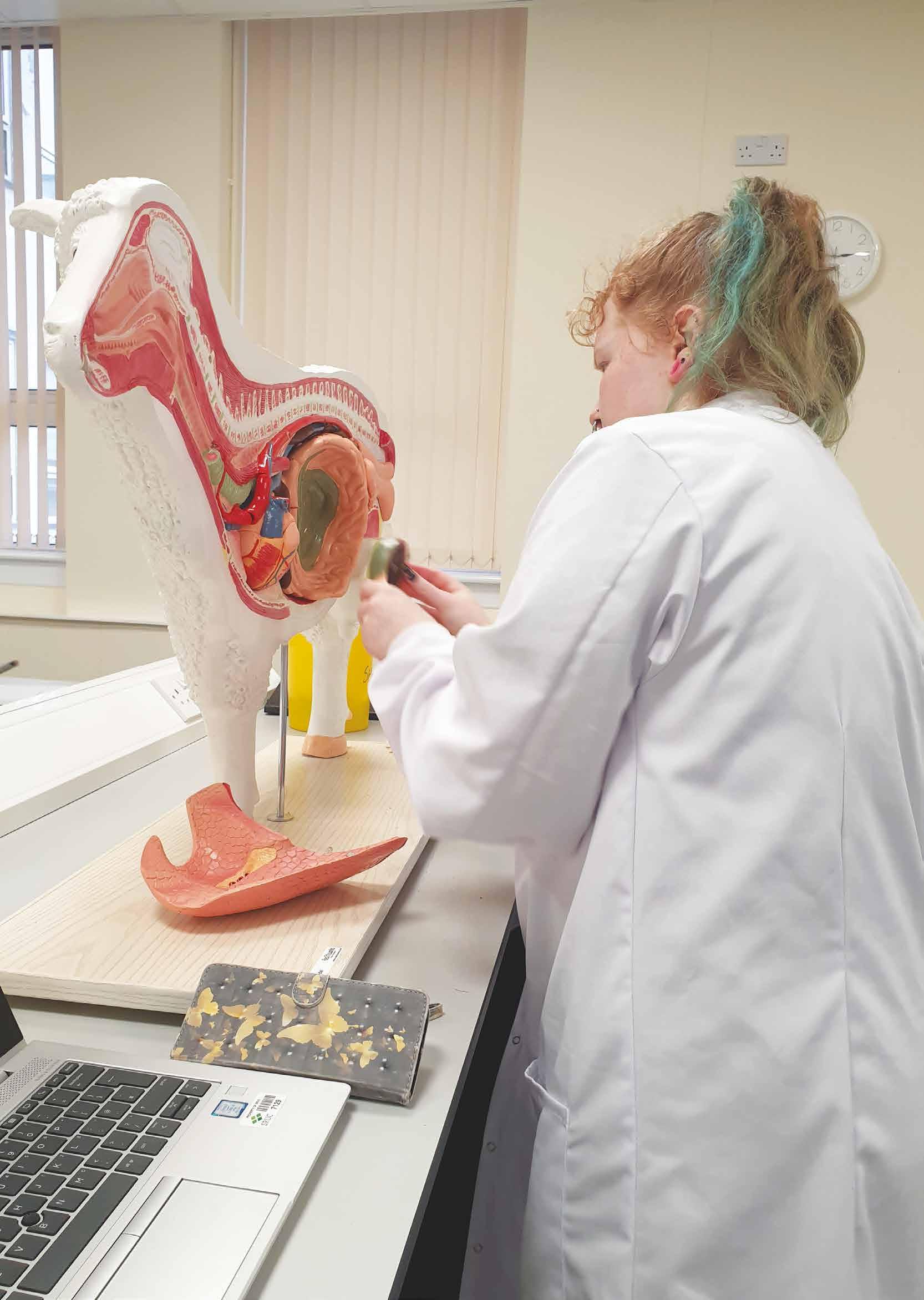
Course Guide
In the first two years of the degree you will study the fundamentals of animal biology. Year three will see a greater focus on how animal science can be applied in the real world, with a career module exposing you to a range of employers and future career opportunities. In year four you will conduct your own research, working alongside internationally recognised animal scientists. Most modules are taught entirely oncampus, but some may incorporate elements of online directed learning, for example using a flipped classroom model where you will be required to watch a pre-recorded lecture or complete an activity at home and then in class apply that new knowledge or skill to a class activity or discussion. www.sruc.ac.uk/animalscience
14
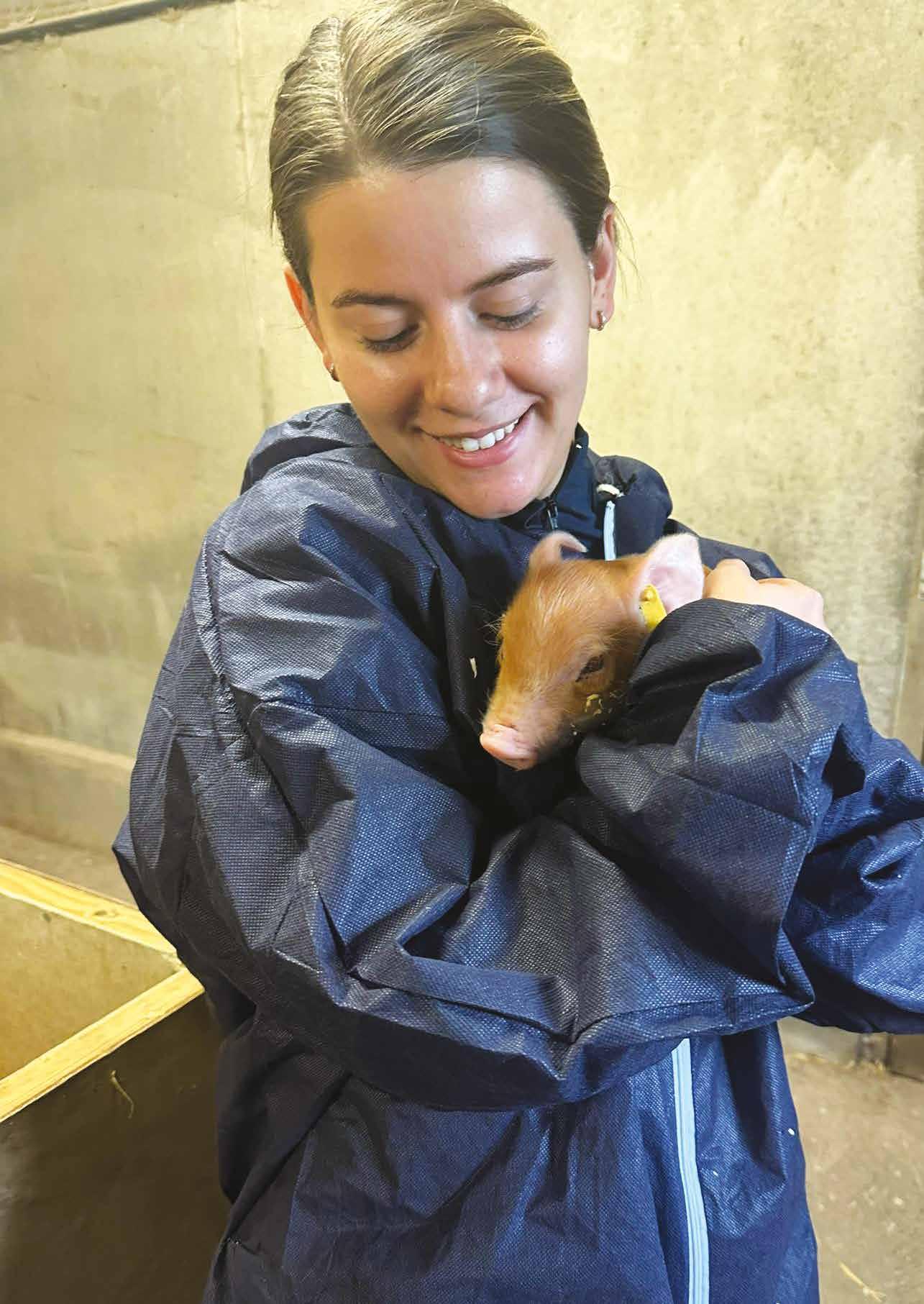
COURSE STRUCTURE
Course
Guide
YEARS 1, 2 AND 3
• 8 modules per year
• 2-3 hours contact time per week per module
YEAR 4
• 5 taught modules and 1 large independent research project
• 2-3 hours contact time per week per module
Assessments are varied and include: exams, laboratory books and reports, scientific essays and literature reviews, presentations and posters, data analysis and research projects.
We use authentic assessments, particularly in years 3 and 4 to help develop your skills and prepare you for the types of activities you will be doing in the workplace.
20 www.sruc.ac.uk/animalscience

Course Guide
COURSE CONTENT
The first two years will introduce you to the basic biological and social science principles that underpin animal science.
You will learn about how animals function and adapt to changes in their environment by studying anatomy and physiology at a cellular, organ and whole animal level and how the health and welfare of animals is dependent on good nutritional management.
You will develop a strong foundation around animal breeding and genetics to learn how we can use genetics to make improvements to health, welfare and productivity in livestock and companion animals through selective breeding.
22 www.sruc.ac.uk/animalscience
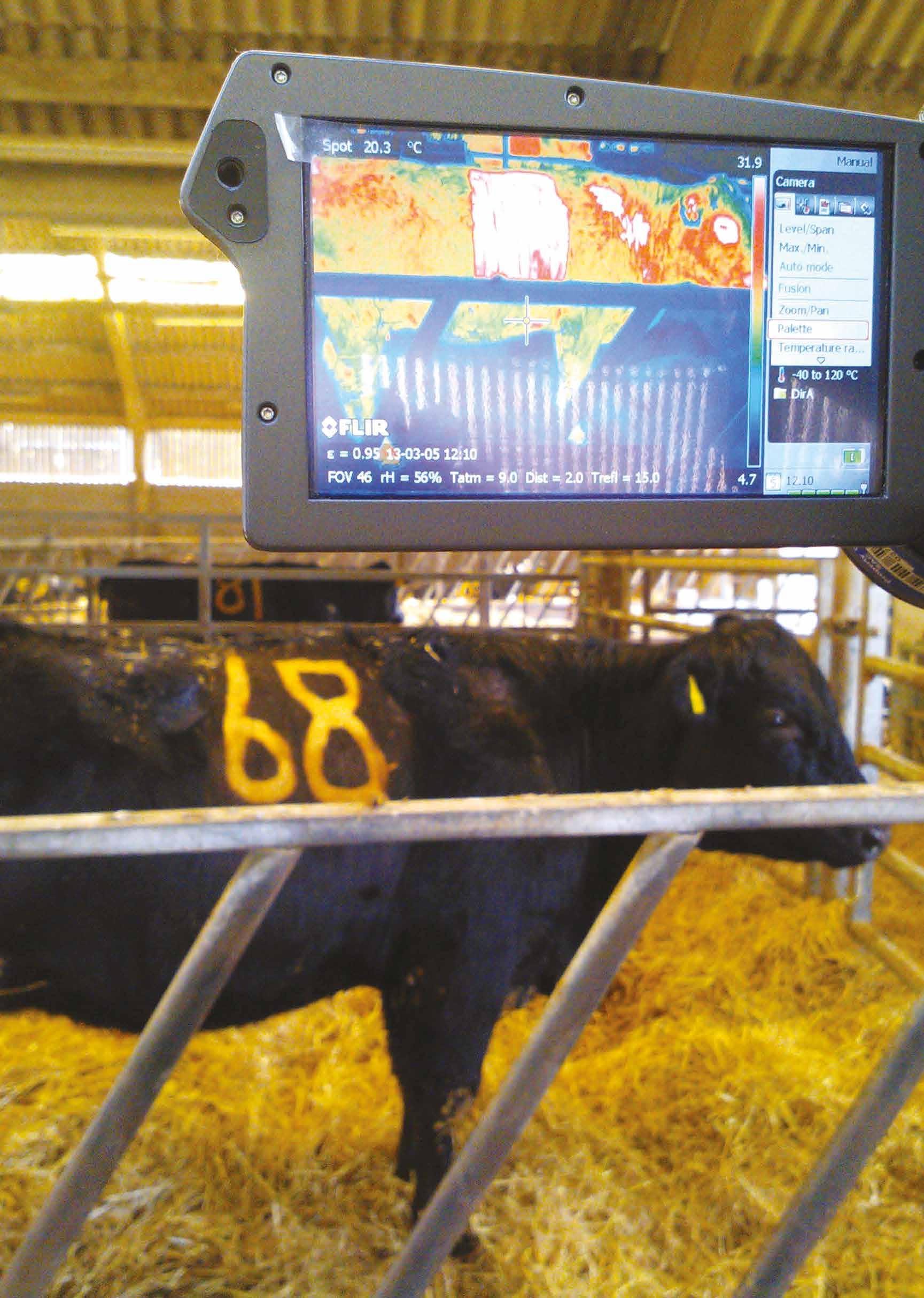
Course Guide
You will learn how we study animals to understand why they behave the way they do including key behaviour theory that underpins much of animal welfare science such as animal handling, animal learning and training, how to assess animal emotions, and how to conduct scientific observations of animal behaviour. You will also explore the variety of ways that humans use animals in different contexts, such as on farms, as companion animals, as captive wild animals, or in research, to begin understanding the humananimal relationship.
You will spend time in the laboratory as part of your animal health and physiology modules; go on field trips to SRUC animal facilities like our farms and small animal units and visit local facilities like Edinburgh Zoo to learn about different types of animal science in different types of animals.
24 www.sruc.ac.uk/animalscience

Course Guide
YEAR 1
MODULES INCLUDE:
• Animal Health
• Animal Physiology Systems 1
• Animal Behaviour
• Basic Animal Nutrition and Digestion
• Data Science and Computing
• Introduction to Genetics
• Keeping and Managing Animals
• Diversity of Life
YEAR 2
MODULES INCLUDE:
• Host-pathogen Interactions
• Animal Physiology Systems 2
• Applications of Animal Behaviour
• Nutrient Requirements and Diet Formulation
• Research Skills and Statistics
• Animal Breeding, Selection and Technologies
• Animals and Society
• Animal Conservation
26 www.sruc.ac.uk/animalscience
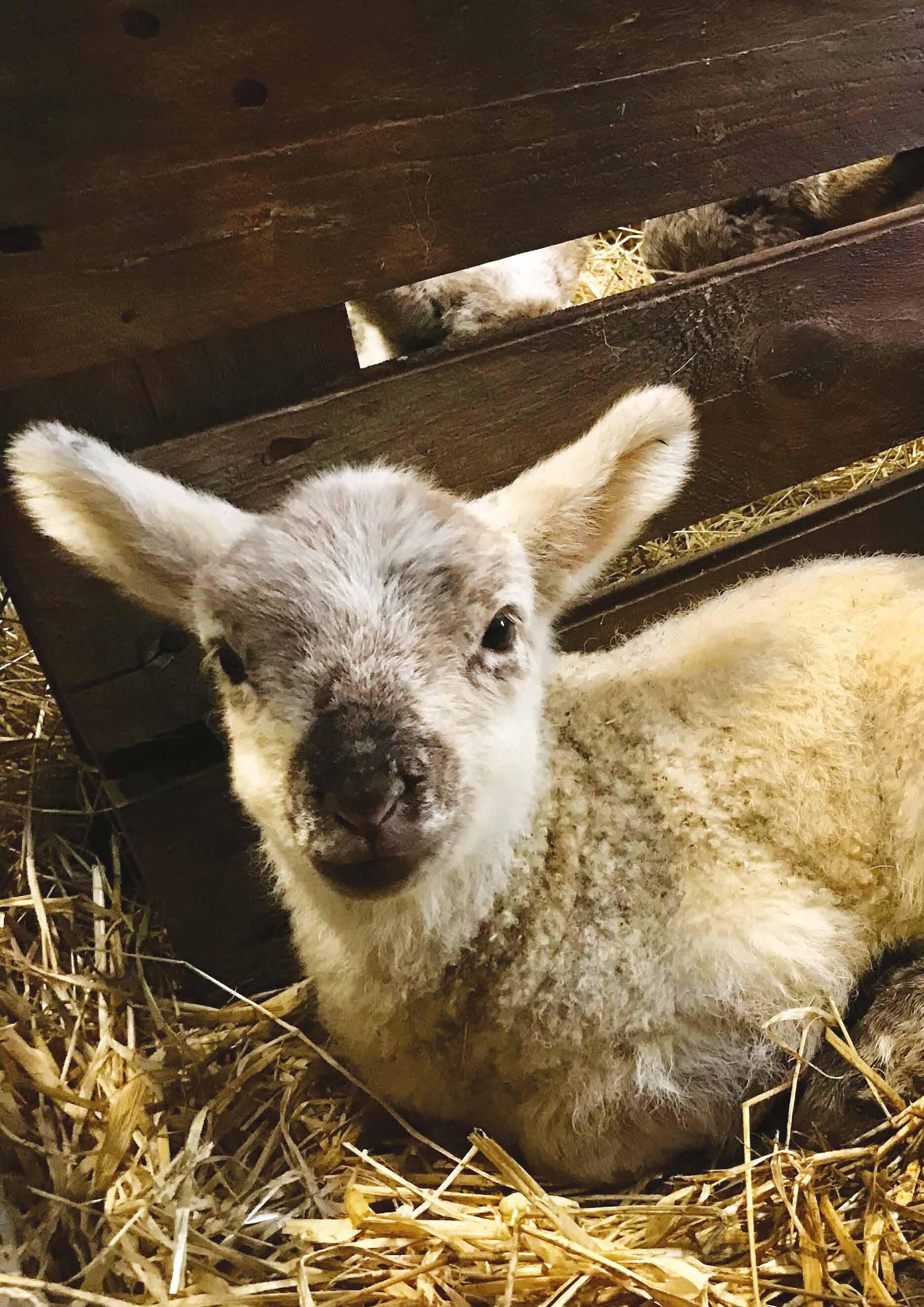
Course Guide
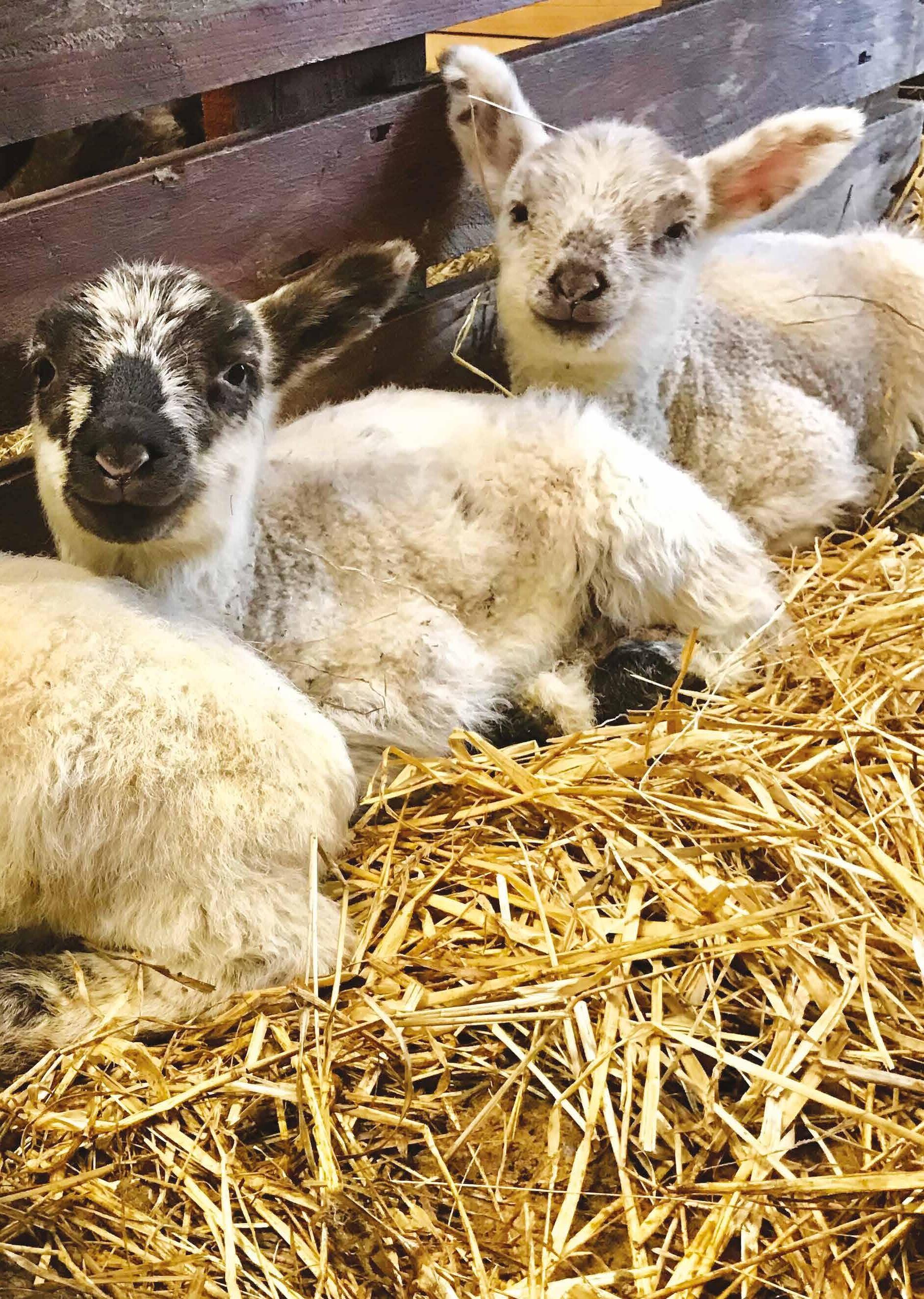
SRUC VIRTUAL EXPERIENCE DELVE DEEPER INTO LIFE AT SRUC
you like to find
We’ve created a Virtual Experience platform where you can find great videos and examples of what it’s like to study our courses, along with campus and facility tours.
28 www.sruc.ac.uk/animalscience
Would
out more about our courses straight from the people who matter most – the students and the lecturers?
www.sruc.ac.uk/experience

Course Guide
WORLD CLASS RESEARCH
You will be taught by world leaders and their teams who will expose you to the most up to date research which feeds directly into the teaching.
The Applied Animal Science course is taught by researchers in the Animal and Veterinary Sciences department whose research is considered world leading having been ranked highest out of the 157 HEI’s in the UK via the Research Excellence Framework.
“Your tutors are world leading experts in their research fields. They are passionate about what they teach and they hope to inspire you.”
30
www.sruc.ac.uk/animalscience
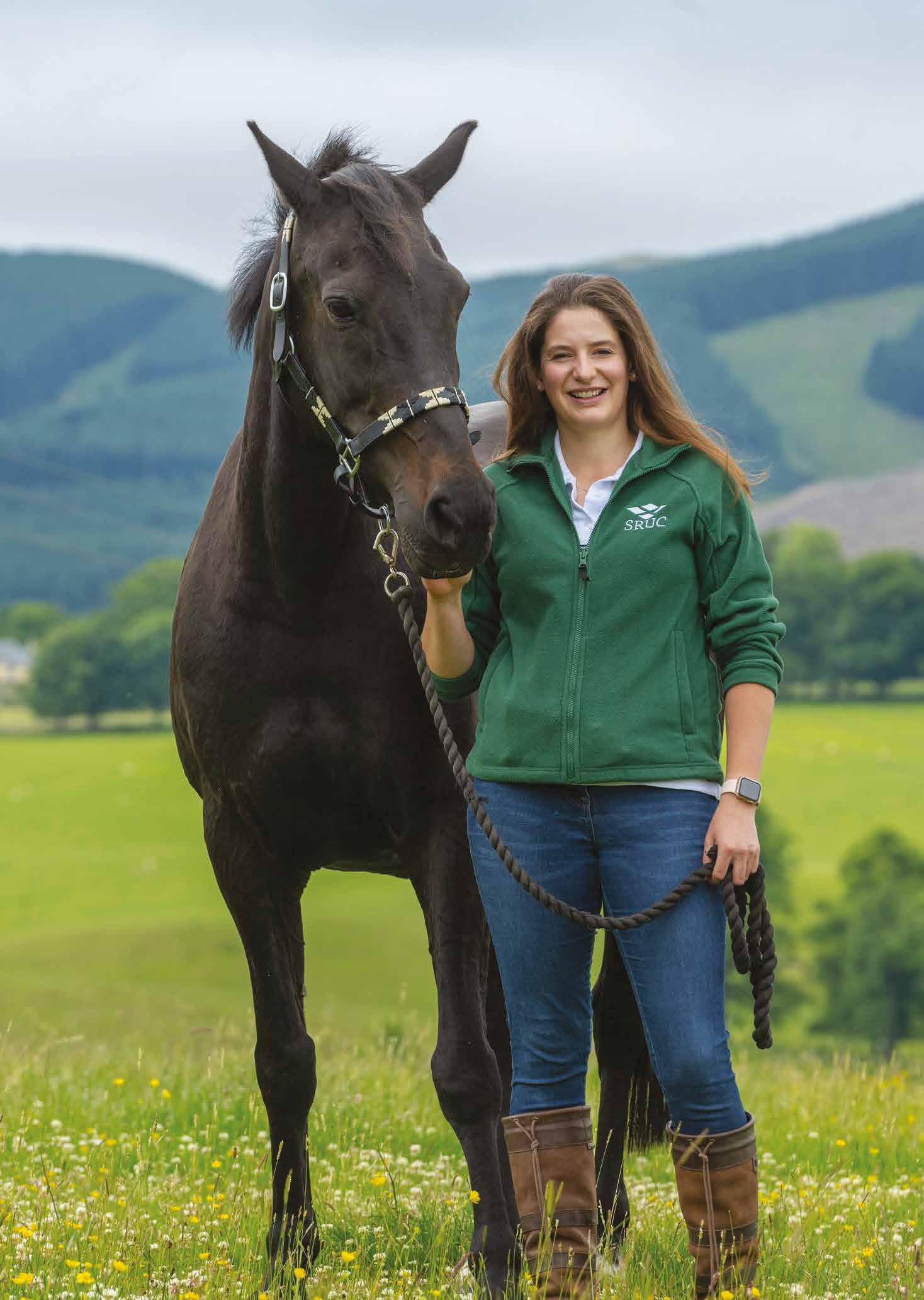
Course Guide
YEAR 3 & 4
In year 3 and 4 your will become more independent in your reading and thinking. You will take the core principles you have learned in each of the subject areas and apply them to real-world examples and situations to explore and learn more about how animal science addresses global challenges such as food security, disease control, anti-microbial resistance, climate change and animal welfare.
In year 3 you will undertake work experience to give you the opportunity to explore one or more areas that interest you and will meet prospective employers to find out about some of the studentships, traineeships, and graduate schemes available to you.
By your final year, you will be honing your academic and scientific skills becoming more confident in your ability to read, interpret and discuss scientific research, and will use these skills to complete an honours project, conducting an independent piece of animal science research on a topic that is of particular interest to you.
www.sruc.ac.uk/animalscience
32
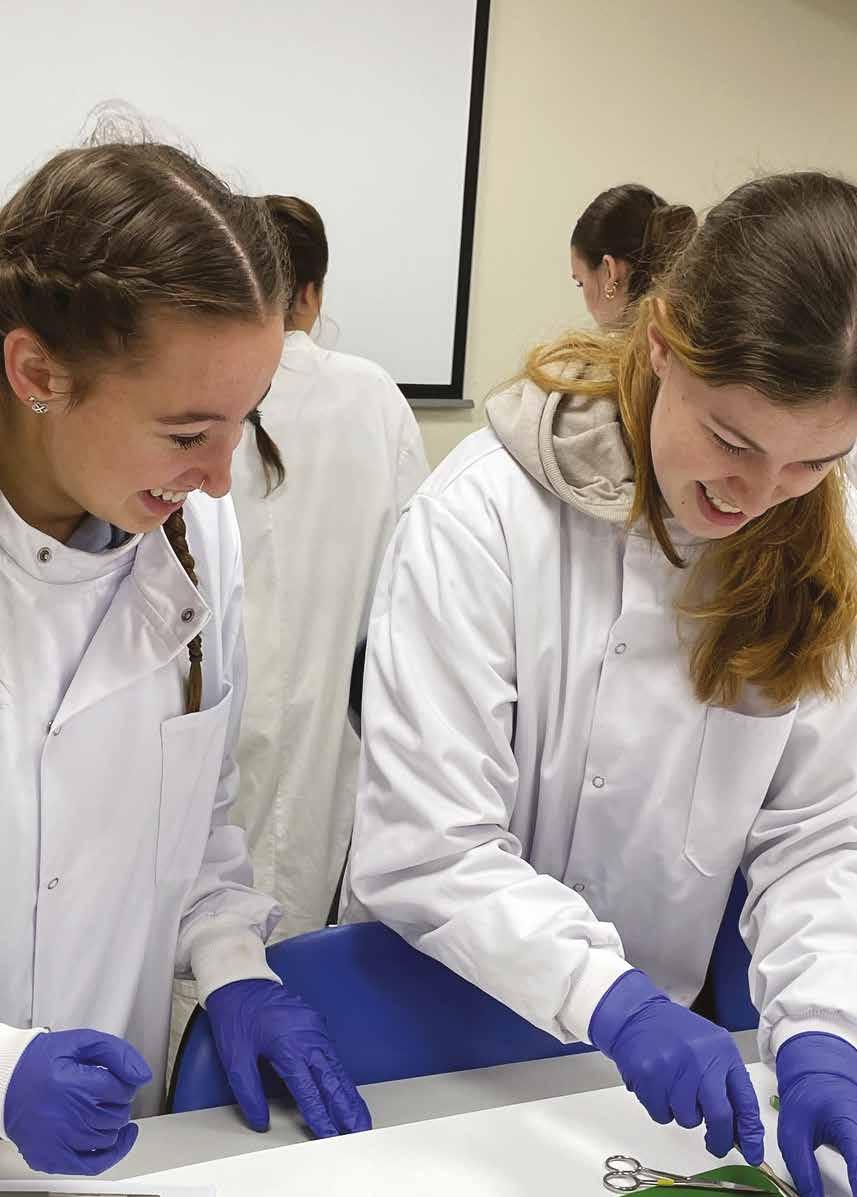
Course Guide
YEAR 3
MODULES:
• Epidemiology
• Advanced Physiology of Growth and Development
• Early Life Physiology
• Animal Welfare Concepts
• Strategic Animal Nutrition
• Wildlife and Agriculture Interactions
• Professional and Academic Skills and Practice
• Advanced Research Methods
YEAR 4
MODULES:
• Disease Surveillance and Control
• Animals at the Centre of Global Issues
• Animal Breeding and Genetics
• Animals and Climate ChangeContributions and Consequences
• Honours Project
ELECTIVE MODULES – CHOOSE ONE:
• Animal Welfare Assessment
• Applied Animal Nutrition
34 www.sruc.ac.uk/animalscience

Course Guide
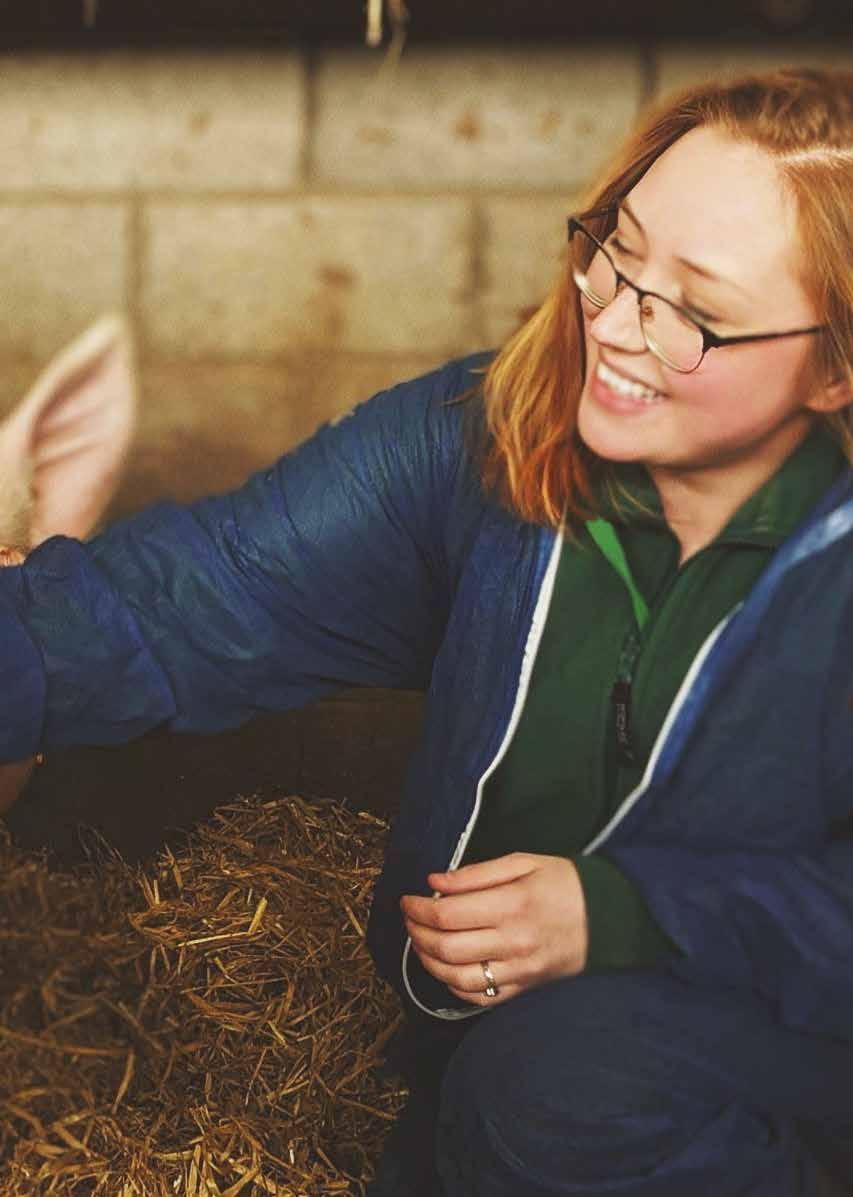
I remember my time at SRUC with particular fondness. The teaching staff were friendly and approachable, the classes were very interesting and varied and the assigned work was very rewarding. I would absolutely recommend this course to anyone thinking about a future in the field of STEM as its uniquely applied teaching style will prepare you for a future professional career.”
Johanne Straube, AAS graduate (2020)
36 www.sruc.ac.uk/animalscience
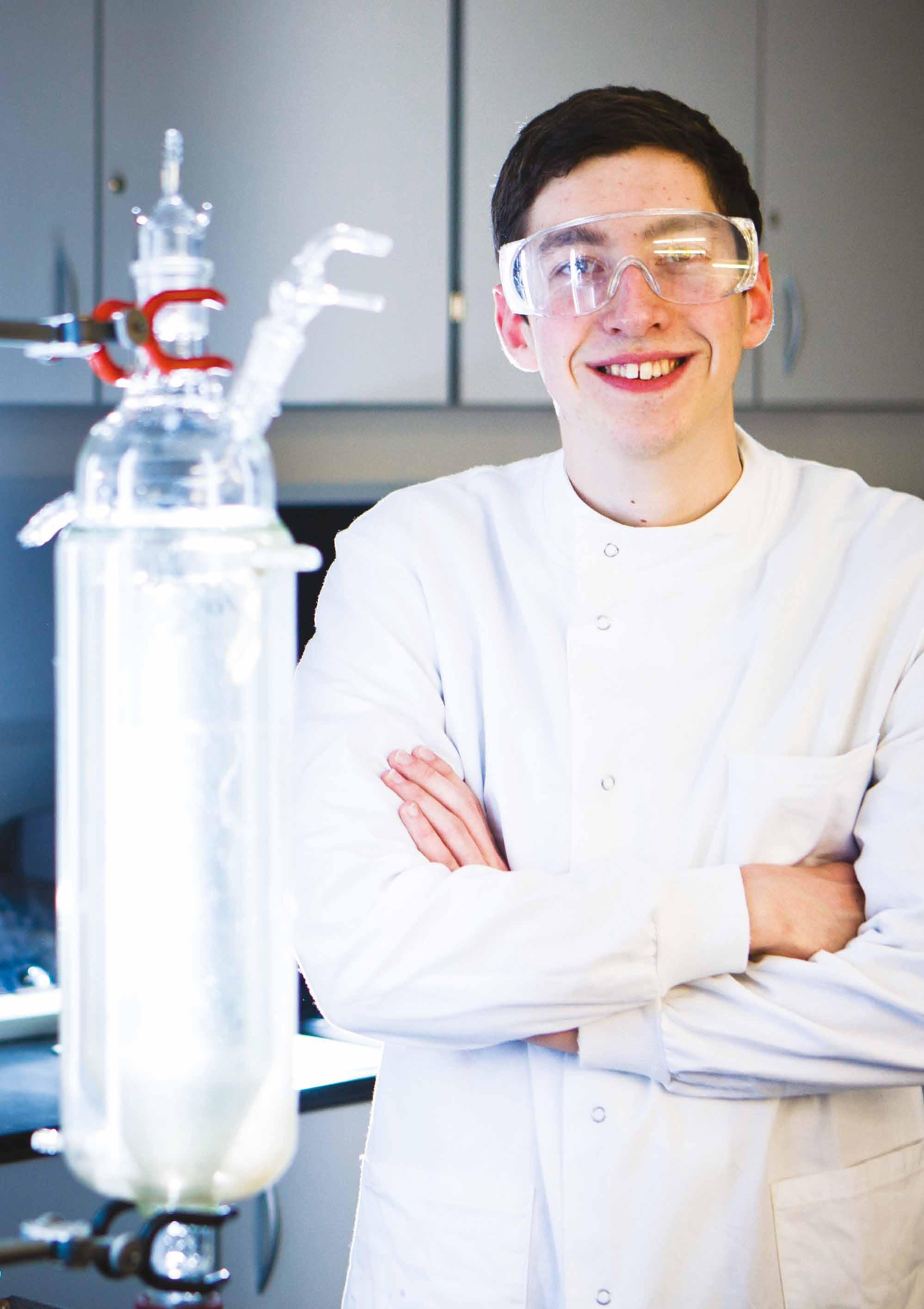
Course Guide
CAREERS:
• Veterinary or Laboratory Researcher
• Animal Geneticist
• Animal Nutritionist
• Animal Health and Welfare Officer
• Animal Advocate
• Quality Assurance Officer
• Farm or Animal Manager
• Policy Advisor
• Animal Care or Research Technician
• Zookeeper
• Educator e.g. Biology Teacher, Animal Welfare Educator
• Research Scientist
• Research and Development in the Agriculture or Food Sector
• Livestock Agent or Buyer
38 www.sruc.ac.uk/animalscience
www.sruc.ac.uk/animalscience























